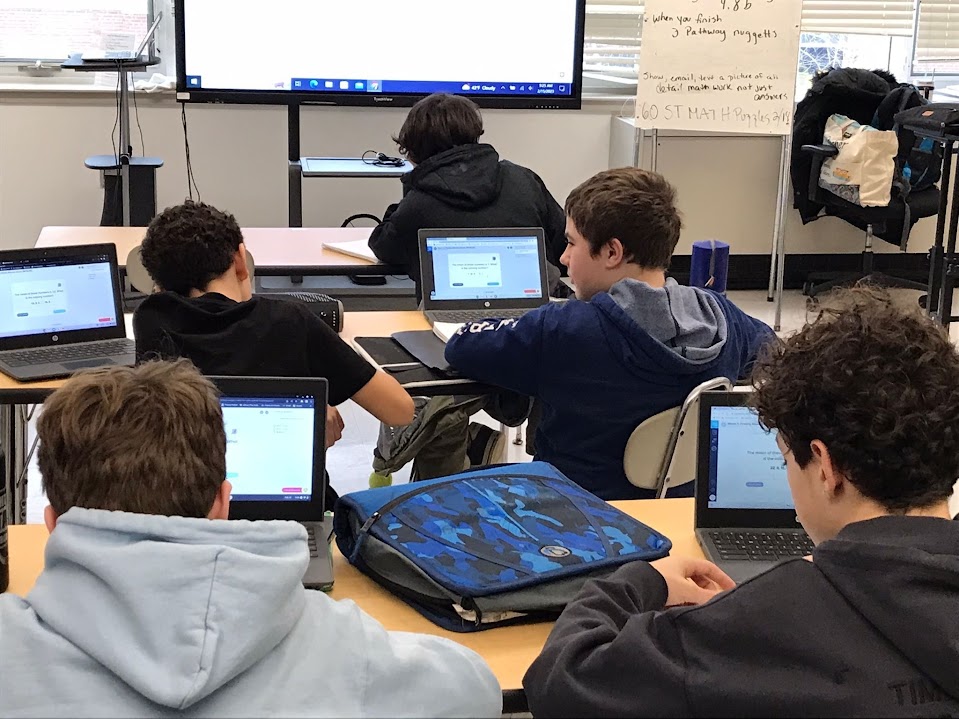
Pre-service teachers in China perceive AI education for K-12 as predominantly positive, while acknowledging its dual nature as both beneficial and potentially challenging.
Pre-service teachers in China perceive AI education for K- as predominantly positive while acknowledging its dual nature as both beneficial and potentially challenging Objective The main goal of this study... continue

ChatGPT is used by 51% of university students regularly and is perceived as effective for academic tasks while also presenting challenges related to critical thinking, academic honesty, and overreliance.
ChatGPT is used by of university students regularly and is perceived as effective for academic tasks while also presenting challenges related to critical thinking academic honesty and overreliance Objective This... continue

Intelligent tutoring systems can support adult learners, but they currently face challenges in adoption due to sociotechnical barriers, while large language models show potential but make too many errors to be suitable as standalone tutoring solutions.
Intelligent tutoring systems can support adult learners but they currently face challenges in adoption due to sociotechnical barriers while large language models show potential but make too many errors to... continue

Large Language Models (LLMs) exhibit implicit biases that mirror and potentially reinforce the hidden curriculum in education, assigning lower scores to student work associated with marginalized populations and demonstrating different authority patterns b
Large Language Models LLMs exhibit implicit biases that mirror and potentially reinforce the hidden curriculum in education assigning lower scores to student work associated with marginalized populations and demonstrating different... continue

Ethiopian secondary school ICT curriculum includes limited AI content with educators facing significant challenges in teaching AI concepts due to pedagogical, curricular, and infrastructure constraints.
Ethiopian secondary school ICT curriculum includes limited AI content with educators facing significant challenges in teaching AI concepts due to pedagogical curricular and infrastructure constraints Objective The main goal of... continue

AI literacy in K-12 education is an emerging research field showing increasing scholarly interest, particularly in secondary education, with significant gaps in understanding factors influencing AI literacy development and teachers' AI literacy.
AI literacy in K- education is an emerging research field showing increasing scholarly interest particularly in secondary education with significant gaps in understanding factors influencing AI literacy development and teachers'... continue

Generative AI can effectively function as a "cybernetic teammate" by replicating key benefits of human collaboration, including performance enhancement, expertise sharing, and positive emotional engagement.
Generative AI can effectively function as a cybernetic teammate by replicating key benefits of human collaboration including performance enhancement expertise sharing and positive emotional engagement Objective This study aimed to... continue

K-12 school districts in the United States are slowly developing AI policies, primarily focused on academic integrity, with only 14.13% of sampled districts having established policies as of May 2024.
K- school districts in the United States are slowly developing AI policies primarily focused on academic integrity with only of sampled districts having established policies as of May Objective The... continue

Teacher professional development post-COVID-19 pandemic in rural Georgia requires improvements in classroom management, smart learning environments, culture practice, and college and career readiness programs to address learning gaps and student disengage
Teacher professional development post-COVID- pandemic in rural Georgia requires improvements in classroom management smart learning environments culture practice and college and career readiness programs to address learning gaps and student... continue

While ChatGPT presents both opportunities and challenges for higher education, its thoughtful integration can enhance teaching and learning processes when implemented ethically alongside human instruction rather than replacing it.
While ChatGPT presents both opportunities and challenges for higher education its thoughtful integration can enhance teaching and learning processes when implemented ethically alongside human instruction rather than replacing it Objective... continue

Generative AI, particularly ChatGPT, has significant potential to transform educational pedagogy through natural language processing capabilities, though implementation requires careful consideration of both technological and ethical implications.
Generative AI particularly ChatGPT has significant potential to transform educational pedagogy through natural language processing capabilities though implementation requires careful consideration of both technological and ethical implications Objective The main... continue

The integration of ChatGPT in a computer science course shows predominantly positive effects on student learning and creativity despite reliability concerns, with most students using it for multiple educational purposes.
The integration of ChatGPT in a computer science course shows predominantly positive effects on student learning and creativity despite reliability concerns with most students using it for multiple educational purposes... continue